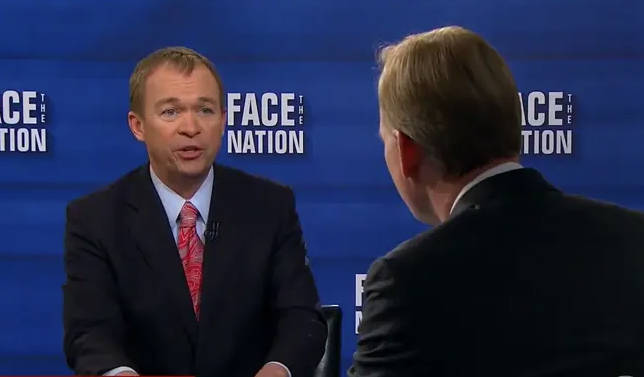Social Security Rule Changes Could Cut Off Thousands of Disabled Recipients
January 14, 2020
By Tom Nash
Hopefully I can strike the right balance here between educating and alerting people to a clear danger, while avoiding unnecessarily scaring people, especially our beloved clients, client prospects, medical professionals, and referral sources. The Trump administration is proposing Social Security rule changes that could cut off thousands of disabled recipients. Having practiced in this field for over 40 years, this plan bears a strong resemblance to a tragedy from the early 80s, when countless deserving people were cut off, particularly the mentally ill, who were ill-equipped to deal with the bureaucratic attack on their livelihood. But remember, there are many “proposals” that never blossom.
In the 1980s, the Democrat Jimmy Carter had started a program to put more oomph ($) into reviewing those receiving disability benefits. Later President Reagan put the review project on steroids and is more closely associated, rightly or wrongly, with draconian results. In my experience, when clients first inquire about receiving Social Security Disability, it is not uncommon for people in good faith to contrast how deserving their claim is versus an allegedly undeserving neighbor or cousin on the dole. A prime example is a commenter to the Philadelphia Inquirer story referenced below, who stated, “The two people I know very well who are on SSD are both on it due to drug abuse.” Those even remotely involved in the process know every well that nobody has been awarded benefits for drug abuse since the 90s. “I know a guy” does not mean fraud, just like it doesn’t mean disability.
In theory, continuing disability reviews are wise; the devil is in the details of the real object and practices. As a young lawyer in those 1980s with a general practice and an emphasis on commercial litigation, it was astonishing to me how many people were calling or showing up at the door in circumstances where they were suddenly cut off of SSDI or SSI. Trust me, these were really sick people, quite unable to work, and when the dust settled on the harsh purge, the laws were changed to attempt to make the process fairer.
The mechanics of the process are still pretty bad. Recently, I spoke with a client from the Chicago suburbs I’ll call Glenn to his protect privacy. It took Glenn two years to get the Social Security Administration (SSA) to finally recognize he is unable to work. He was very ill with fairly treatment-resistant schizophrenia; in the course of the representation, it was a miracle that family members got him to the emergency room, but inpatient psychiatric admission was declined because he was not a “danger to himself or others.” He had the same result later that same day when he jumped out of a moving car. The suburban police declined to bring him in for psych treatment; somehow, that was not a danger to himself or others! Glenn is in a group home now, along with others there who also have serious mental illness and are unable to function on their own.
The problem with the president’s proposed rule is as follows. SSA already has mechanisms to review cases, but the process is just as arbitrary as the system adjudicating the disability claims in the first place. The Administrative Law Judge (ALJ) who we finally convinced to approve Glenn’s case had added an item in the decision a couple years ago suggesting the likelihood of medical improvement, but without any indication of the basis for that speculation. It was just a goofy tack (when there was no such likelihood of improvement) that perhaps made the ALJ feel good that she was dutiful to the “taxpayers,” but it really put our Glenn in harm’s way. Glenn can’t deal with the system on his own and he could easily get lost in the bureaucratic paper and evaluation shuffle.
 Once they are approved for benefits, clients frequently want to know how long their benefits will last, and the risk that they will be cut off. The danger with the current “continuing disability review” proposal is reflected in Glenn’s story above. The president’s current chief of staff and budget director, Mick Mulvaney, (pictured here) has clarified on national television that he does not think Social Security disability is “really Social Security” at all and he wants to cut people off. (For the full story click here.)
Once they are approved for benefits, clients frequently want to know how long their benefits will last, and the risk that they will be cut off. The danger with the current “continuing disability review” proposal is reflected in Glenn’s story above. The president’s current chief of staff and budget director, Mick Mulvaney, (pictured here) has clarified on national television that he does not think Social Security disability is “really Social Security” at all and he wants to cut people off. (For the full story click here.)
Such a view does harm to clients like Josephine. She has been living for months in an abandoned building, and could never fend for herself when it came to SSA paperwork and appointments. This was especially the case when the objective of that paperwork, engineered by people with no regard for what low-income families’ lives actually look like, is to trim those rolls. And then there is Marlene, from South Holland. The first ALJ handling her hearing caused her to be arrested because, in connection with her absolutely horrific life story and PTSD, and the tone deaf questioning by the ALJ, she hurled the microphone at the judge! Even the decent, different ALJ who later approved Marlene’s case set a date for her to be reviewed in a few years because of expected “improvement.” Does your common sense suggest the profile below is likely to improve in a couple years with some magic treatment wand?
The claimant has a history of suicidal ideation and suicide attempts. Recently, she has discussed a recurring idea of stepping out in front of a moving vehicle. Most recently, in 2017, she used an extension cord in an attempt to asphyxiate herself. The claimant reports having “crazy thoughts” and being in significant emotional pain. The claimant admits to hearing voices that suggest “evil and good things for her to do. She reports difficulty sleeping and low energy. She reports difficulty concentrating nearly every day. She presented to Grand Prairie Services with marked anger, depression, and paranoia. She regularly presented as tearful. She was overwhelmed and “in crisis”.
So, the Trump administration’s proposal making changes to Social Security that could terminate disability payments to hundreds of thousands of Americans, particularly older people and children poses a real danger. See: https://www.inquirer.com/news/social-security-ssi-ssdi-trump-administration-disability-20191212.html. The new rule would change aspects of disability reviews — the methods by which the Social Security Administration determines whether a person continues to qualify for benefits. Few recipients, perhaps such as you, are aware of the proposal, which is open for public comment through January 31. (You can comment here: https://www.regulations.gov/comment?D=SSA-2018-0026-0001.) Critics of the plan liken it to the administration’s efforts to cut food stamps, among other entitlement programs, with insufficient information offered to explain curtailing benefits. Advocates for low-income Americans say that the new rule is just a way to push people off the disability rolls.
So, what is this new rule? Those receiving disability benefits are already subject to so-called continuing disability reviews, which determine whether they are still deserving of the monthly benefit. Not everyone gets reviewed within the same time frame. A person with a grave illness such as Lou Gehrig’s disease (ALS) is placed in a category called “Medical Improvement Not Expected,” and is subject to review every five to seven years. The very real danger of the current proposal is the administration’s rule change to create a category called “Medical Improvement Likely,” which would mandate disability reviews every two years, creating an additional 2.6 million reviews over the first 10-year period. An estimated 4.4 million beneficiaries would be included in that designation, many of them children. The rest of those targeted for these proposed reviews are typically 50 to 65 years of age, and obviously in poor health, or they would not have been approved in the first place. They are also without much education or many job skills. They often suffer from maladies such as congestive heart failure, diabetic neuropathy, and multiple sclerosis. The inclusion of such people in the administration target list appears to make little sense to me. Medical conditions generally deteriorate as already unhealthy people get older, and the evidence of “likely” improvement strikes me as quite thin and result-driven.
Compelling these people to be reviewed every two years seems to reflect a general hostility toward the Social Security Act. The ultimate aim of the rule seems to be to review downtrodden people so often that they ultimately lose their benefits because of the difficulties complying with the review process. There just seems to be an underhandedness to this. It does not seem to be based upon any medicine or science, but more so part of a harsh war on the poor, setting people up to not comply and then shrink the rolls and to then call that an American success story.
* Thanks to Alfred Lubrano of the Philadelphia Inquirer for his journalism on this story.


